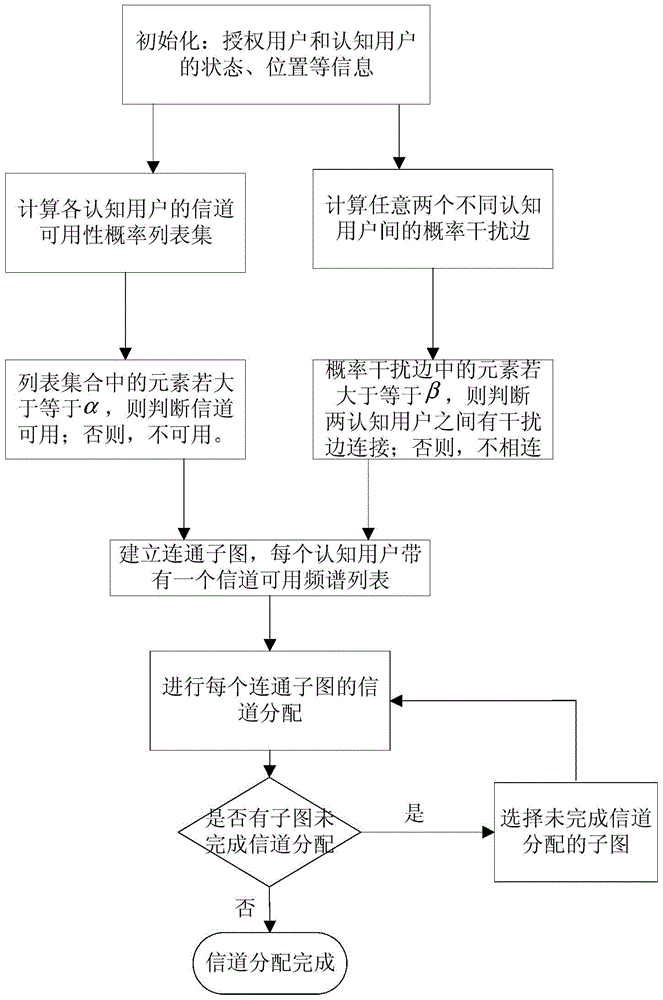Channel Allocation Method Based on Mobility Prediction in Cognitive Radio Networks
A cognitive radio and channel allocation technology, applied in wireless communication, network planning, electrical components, etc., can solve the problems of not considering the mobility characteristics of cognitive users, poor system fairness, and low utilization of effective channels.
- Summary
- Abstract
- Description
- Claims
- Application Information
AI Technical Summary
Problems solved by technology
Method used
Image
Examples
specific Embodiment approach 1
[0051] Specific implementation mode 1. Combination figure 1 Describe this specific implementation mode, a channel allocation method based on mobility prediction in a cognitive radio network, which is implemented by the following steps:
[0052] Step 1. Initialize. In the deployment area, randomly generate the position and velocity vectors of N (i=1:N) cognitive users (including size and orientation). Each cognitive user i predicts a continuous time period T p , at time period T pThe current available channels in the network are continuously available for cognitive user i; each cognitive user i calculates the interference time between itself and other cognitive users i′ (i′=1:N) as T p ′, note: i≠i′.
[0053] Randomly generate fixed geographic locations of M (j=1:M) authorized users, whose locations obey a uniform distribution. Each authorized user has a dedicated authorized channel corresponding to it, that is, each authorized user can use a corresponding authorized cha...
PUM
 Login to View More
Login to View More Abstract
Description
Claims
Application Information
 Login to View More
Login to View More - R&D
- Intellectual Property
- Life Sciences
- Materials
- Tech Scout
- Unparalleled Data Quality
- Higher Quality Content
- 60% Fewer Hallucinations
Browse by: Latest US Patents, China's latest patents, Technical Efficacy Thesaurus, Application Domain, Technology Topic, Popular Technical Reports.
© 2025 PatSnap. All rights reserved.Legal|Privacy policy|Modern Slavery Act Transparency Statement|Sitemap|About US| Contact US: help@patsnap.com



